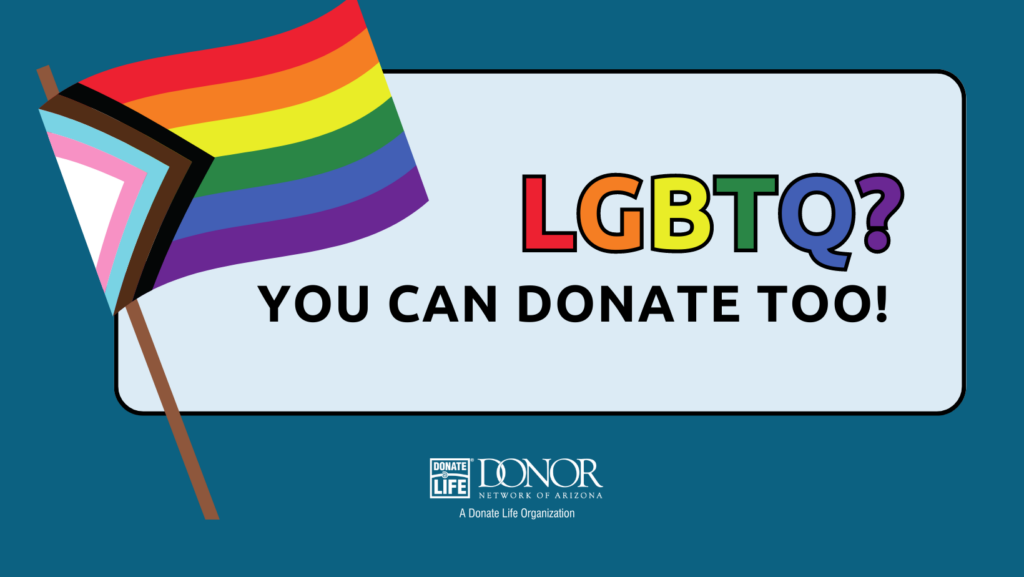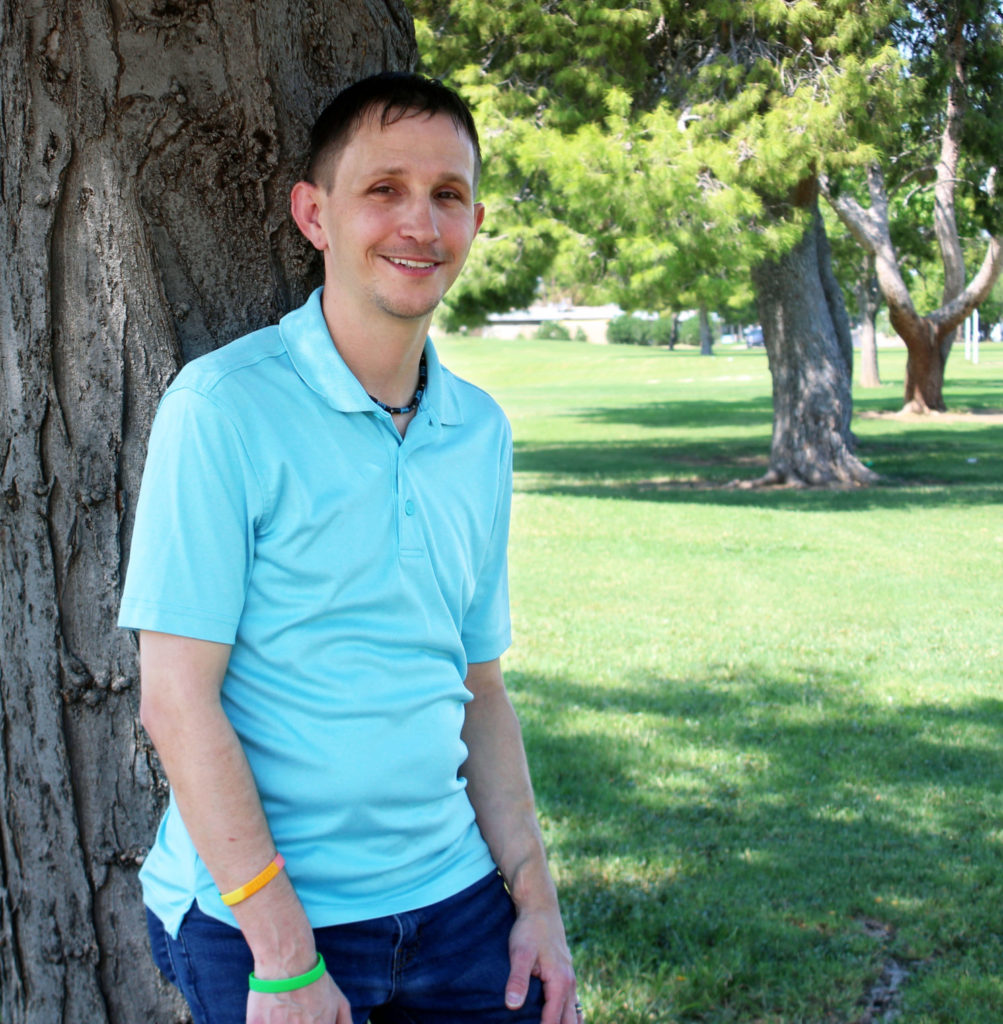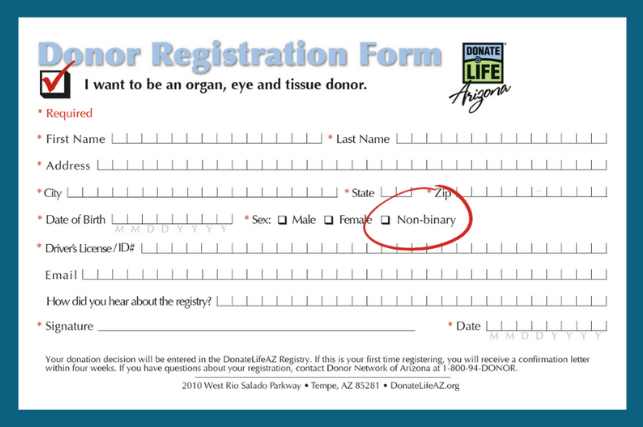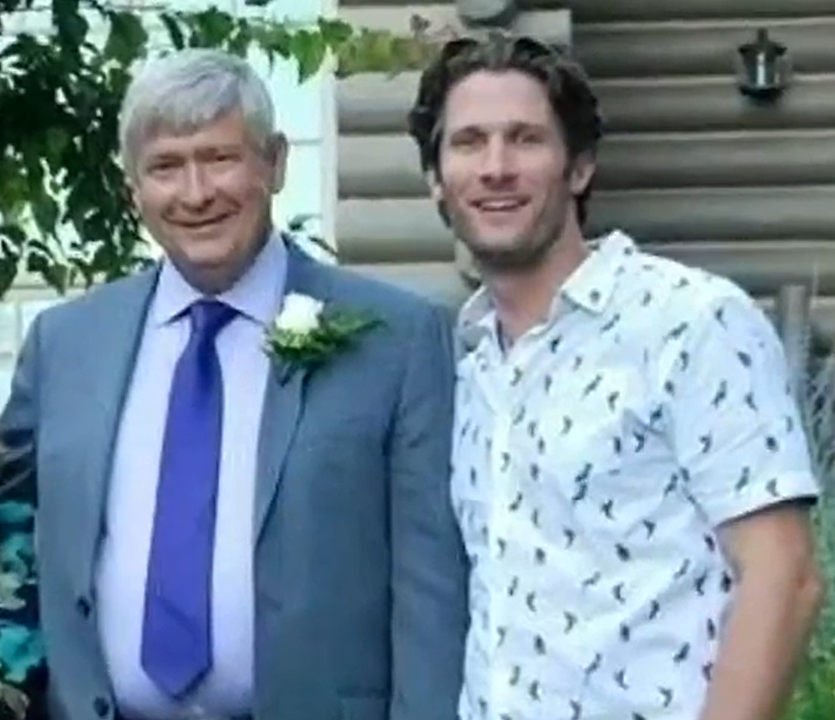
LGBTQ? You can donate too!
06/21/2023Can members of the LGBTQ+ community register as an organ, eye and tissue donor or receive a transplant?
YES!
REGISTERING & RECEIVING
A person’s sexual orientation, gender, gender identity or expression does not prevent them from becoming an organ, eye and tissue donor (deceased or living). Everyone is encouraged to register their decision to become a donor!
This is because organ donation is regulated differently than other types of donation. The eligibility of organ donors, LGBTQ+ or not, is regulated by Health and Human Services (HHS). While such infections are not exclusive to the LGBTQ+ community, it’s important to note that HIV and hepatitis C infections no longer prevent the possibility of lifesaving organ donation thanks to the HOPE Act. Learn more about the HOPE Act here.
Cornea and other tissue donations are regulated by the Food and Drug Administration (FDA) and may include medical and lifestyle exclusion criteria that denies members from some avenues of donation. But medical professionals make those determinations after someone has passed away. Meantime, any person’s donation registration is valid.
Sexual orientation and gender identity or expression are never considered during the transplantation processes either. The United Network for Organ Sharing (UNOS) matches available organs from the donor with people on the waiting list based on a variety of criteria, including:
- Blood type
- Body size
- How sick they are
- Donor distance
- Tissue type
- Time on the waiting list
SECOND CHANCES

Kidney recipient Michael Learned and his husband, Matthew, got to meet his donor’s family after years of communication. Learned was diagnosed with Type 1 diabetes as a child and knew he would need a kidney transplant in the future to save his life.
Michael later received a second chance at life thanks to the generosity of his organ donor, Jordyn Avelar. Many help save and heal lives of people like Michael through their decision to register as organ and tissue donors.
MYTH BUSTING
Allocation policies to place organs do not include other factors, such as wealth or celebrity, immigration status nor personal relationship to a medical professional. Organ distribution prioritizes helping the sickest patients get a second chance. Period.
ONGOING EFFORTS OF INCLUSIVITY
We are actively improving our outreach to the LGBTQ+ community. Our Arizona donor registration cards now have a “non-binary” gender option so that everyone has the opportunity to register as an organ and tissue donor.

BATTLING MISCONCEPTIONS

Andrew Banacki, living kidney donor from Ohio, has helped combat the misunderstandings that that have encountered the LGBTQ+, transplant and donation communities by sharing his family’s story. Banacki is a proud gay man, and he was able to give his father a second chance at life by donating his kidney to him.
“I think in the gay community there’s a huge misconception that – say I’m a gay male – I can’t give blood, so nobody’s going to take my organs,” says Kent Holloway, former CEO of LifeLine Ohio at the time of Banacki’s interview.
There are truly no limitations to who can register as an organ and tissue donor. Throughout Pride Month, we encourage members of the LGBTQ+ community to register and celebrate the diversity that lies within the LGBTQ+, transplant and donation communities.
No matter how you identify, you can leave a lasting impact! Join the DonateLifeAZ Registry when you apply for or renew a driver’s license or state ID at an ADOT MVD office. You can also register online today at DonateLifeAZ.org.

